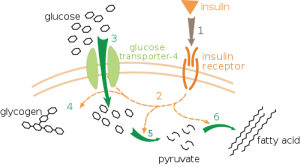me·tab·o·lism
What is Metabolism?
Metabolism can be viewed as the process in which your body converts food into energy, and also the means by which is uses that energy to perform all the actions you want and need to do. These actions include the necessary functions of growth and healing, movement, breathing — everything you do requires energy, and your body converts food into that energy, and then uses the energy to function. Metabolism is then in the broadest sense, all the biochemical actions your performs in the course of living.

What is Slow Metabolism?
Even at rest, your body is working hard to keep you alive. Breathing and cardiac function obviously never cease, nor do your homeostatic pathways to regulate your body temperature, sensory pathways of your environment, digestion, and more. The rate at which your body consumes food energy is often a factor evaluated for dietary regulation, to determine how rapidly your body “burns” food and the resulting energy.
So for many, this metric reflects on their weight gain or reduced ability to lose weight even with normal dieting. The rate your resting person consumes energy is often called basal metabolism or appropriately, resting metabolism. This can actually be measured clinically, to assess what your baseline (hence the basal) energy needs are, which in turn can help determine what your caloric and activity needs must be in order to produce functional weight loss, or other medical assessments.
Metabolic Testing
At WeightLossNYC, Dr. Aron is able to provide an accurate clinical evaluation of your resting metabolic rate, and help you get on track with losing weight and overcoming obesity. You can win against the health risks of obesity and improve your health right now by getting serious about losing weight. Call our office to schedule a metabolic screening and get smart about your body health.
 Author: Oksana Aron, MD
Author: Oksana Aron, MD
Thank you for your interest in your health and wellness.
Please visit WeightLossNYC® to learn more about metabolism and weight loss.
Further reading


 Author:
Author: